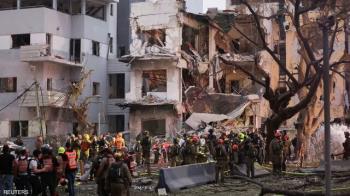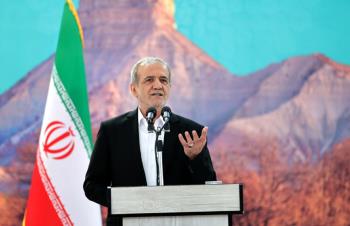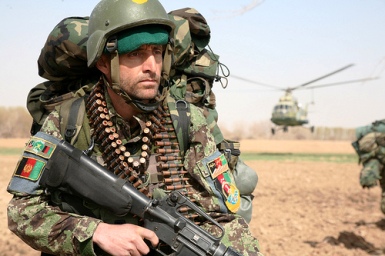Alwaght- On December 28, 2014, at a small, secret, heavily secured ceremony and in the presence of dozens of handpicked Afghan and international officials in Kabul, NATO forces led by the U.S. declared the end of the U.S.-led war on Afghanistan. American General John Campbell, the last commander of the International Security Assistance Force (ISAF), rolled up the ISAF flag and, with that, 13 years of war on Afghanistan. The war on Afghanistan – for America was, and continues to be, the longest war in its history.
ISAF is a force comprised of troops from NATO as well as non-NATO countries and had been leading the war on Afghanistan since 2001. ISAF’s flag was replaced with the flag of Operation Resolute Support (ORS), which supposedly aims to assist, advise and mentor the Afghan National Security Forces (ANSF) in its fight against terrorism and Taliban post 2014.
Under the new NATO Resolute Support Mission approximately 12,000 soldiers will remain in the country to train and advise the Afghan Security Forces. A separate U.S. so-called counter-terrorism mission, also new, will involve about 1,000 troops. However, according to U.S. President Barack Obama nearly all U.S. troops will be out of Afghanistan by the end of 2016.
But the war is far from over, and unlike in Iraq in 2011, foreign forces haven’t left Afghanistan.
“Strategic and International Studies Center" warned from the deteriorating security situation in Afghanistan as "much worse than the image conveyed by the Ministry of Defense and the leadership of the international forces, pointing to the failure of the US and its allies in efforts to care and training of Afghan forces."
Furthermore, it pointed out that Obama's strategy to reduce military expenditures accompanied by a reduction of the level of the "Advisory presence of US forces could cripple the efforts of the transitional phase", which would "strengthen efforts calls for a military presence long utmost necessity to achieve success."
According to Reuters, U.S. government watchdog criticism concerning unjustified secrecy surrounding reconstruction efforts has pushed U.S.-led force in Afghanistan to declassify data on the Afghan security forces available to the public.
But, SIGAR spokesman said that Resolute Support has informed them that a great deal of the information has been declassified.
Data that had been classified included information on ANSF strength, equipment, infrastructure and anticorruption measures.
What could be understood from the declassification step taken by the US officials could be understood in the context of the U.S. to further destabilize Afghanistan. This destabilization will give them excuse to further extend their presence in Afghanistan. On one hand, the U.S. has spent over $100 billion in Afghanistan; on the other hand, this country (Afghanistan) is rich in natural resources stocks, the price of which is estimated to be more than 3 trillion dollars. As well as, the country is considered as a transit connection for oil and natural gas pipelines from Central Asia to South Asia. Taking these facts together, we can find out that the U.S. is not considering to leave Afghanistan in the immediate future, and the excuse for this won’t be else than an unstable Afghanistan.
Moreover, this could be a lesson for those countries that have American military bases on their land, as well as military cope with. They should be aware of their ally, whom when it comes to its own interests, the U.S. don’t know any ally.



























